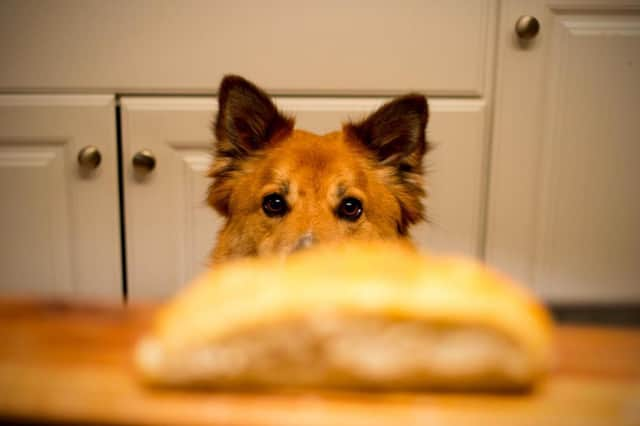Toxic foods for dogs: Christmas foods you should not feed your pet - and why you should avoid them


While we tuck into our delicious turkey dinners and selection boxes this Christmas, it’s important to remind ourselves that not every treat is designed to be suitable for our dogs.
Pet food company Tails.com warns that there are a number of festive dishes that you should not share with your pooch, no matter how eager they are to have a bite.
Advertisement
Hide AdAdvertisement
Hide AdThe nutritional experts have shared advice on what to do if your dog has eaten any of the following:
Chocolate
While selection boxes and assortment trays are fun festive treats for us humans, chocolate is extremely poisonous for dogs because of its high theobromine content, which is highly toxic for dogs as they are physically incapable of metabolising it.
If your pup does end up pinching a piece of chocolate when your back is turned, the nutritional experts at tails.com recommend how to handle it:
“If your dog eats even a small amount of chocolate, you should arrange an immediate appointment with your veterinarian, and in the meantime monitor their behaviour very closely for any symptoms or sickness”.
Advertisement
Hide AdAdvertisement
Hide AdThe darker the chocolate the more dangerous it is for your dog, and as little as 8.5 grams of cocoa-rich chocolate may even be enough to kill a small or young dog.
Mince pies
Mince pies are packed full of dried fruits such as sultanas, raisins, currants and grapes which can be extremely toxic for your dog.
Even small amounts of these kinds of fruits can lead to severe kidney failure in your pooch.
Christmas pudding
Much like mince pies, Christmas puddings are full of dried fruits that can be toxic for your dog.
Advertisement
Hide AdAdvertisement
Hide AdAn added danger of the Christmas staple is that they also often contain alcohol, making this dessert even more harmful for your canine companion.
It might seem like common sense to most dog owners, but giving your dog alcohol is never okay, and it goes without saying that any food containing spirits, beer or wine, should not be given to your dog either.
Long-abandoned leftovers
When food gets left for too long it can become a breeding ground for mould and bacteria, with bread, meat and dairy products such as cheese and yoghurt being particularly susceptible.
The nutritional experts at Tails said:
“It is important to keep any leftovers out of reach from your pet, and extra important to not keep any leftovers in the fridge for any longer than 24 hours or the recommended amount of time on the product’s packaging”.
Skin and bones
Advertisement
Hide AdAdvertisement
Hide AdWhile it is fine to feed your dog small portions of leftover turkey, it is important to keep your pooch away from the skin and bones of the bird.
Turkey skin is far too fatty for your pooch and eating greasy foods like this can lead to pancreatic issues and obesity, especially in smaller dogs.
Not only are meat bones a potential choking hazard for your dog, but they may also cause internal damage to their organs, as they are too hard to digest properly.
Onions, garlic, shallots and leeks
While onions, garlic, shallots and leeks are tasty for us humans on Christmas day, they all belong to the allium plant family, which is poisonous for dogs.
Advertisement
Hide AdAdvertisement
Hide AdThings like onions and garlic contain a chemical compound called thiosulfate which can be toxic for dogs as it causes damage to their red blood cells, which may result in your dog becoming anaemic.
For this reason, it is important to resist the urge to feed your dog any leftover stuffing from your Christmas dinner, as it tends to be packed full of onions and garlic.
Nuts
Although not all nuts are toxic, they are all high in fat and serve as potential choking hazards for those extra-greedy dogs who are too excited to remember to chew properly.
If your dog has consumed a large number of nuts and appears to be showing symptoms, then you are advised to seek veterinary attention as soon as possible.
Advertisement
Hide AdAdvertisement
Hide AdSupport the YEP and become a subscriber today. Enjoy unlimited access to local news and the latest on Leeds United, With a digital subscription, you see fewer ads, enjoy faster load times, and get access to exclusive newsletters and content. Click here to subscribe.
Comment Guidelines
National World encourages reader discussion on our stories. User feedback, insights and back-and-forth exchanges add a rich layer of context to reporting. Please review our Community Guidelines before commenting.
